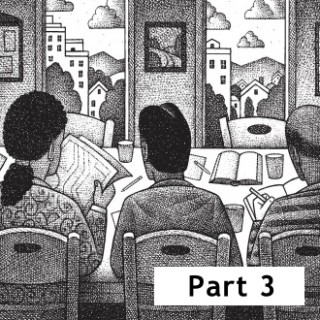Two years ago we asked 25 individuals who have served both as professional and citizen planners for their thoughts on a series of five short questions — and published their replies in the Planning Commissioners Journal. We received great feedback on what we titled “Sitting on Both Sides of the Table” — as a result, we decided to ask another seven individuals who have also sat on both sides of the table for their thoughts. We hope you find what they have to say equally interesting.
For very short bios of the seven planners, see the sidebar to your left.
If you have one or two pieces of advice you’d give to planning commissioners based on your experience as a professional planner, what would they be?
Steve Ostaseski:
Read the rules, read the rules, attend a class, and prepare for your meeting more than one hour in advance.
John Morgan:
Don’t be afraid to always ask for more information, and always speak up.
Too often citizen planners hold back from asking too many questions. Often this is because the municipal staff is either dismissive, abrasive, or overly cautious about “influencing” the commission; or the senior members of the commission who are set in their ways discourage new ideas and perspectives. Regardless of these circumstances, commissioners should challenge municipal staff and each other to always have the most detailed information for consideration, and develop the most thoroughly vetted resolution to issues.
Anna Choudhuri:
Do your homework! This may include site visits (on your own or with planning staff, if you request such), checking the policy documents, or even researching similar issues in other jurisdictions.
Don’t be afraid to ask for additional information you may need to make your decision on any item in front of the Commission. Sometimes this may result in an applicant having to return to the planning commission, but you owe it not only to the applicant, but also to the larger community to make informed and complete decisions.
Don’t feel as if you have to vote with the majority, especially as a new member! Your vote is your own and you may even be able to change it before the final vote is entered into the record, but vote the way you think you need to and not as you feel the rest of the Commissioners expect you to!
Janet Agnoletti:
Always think for yourself; do your own analysis of proposals before coming to the table despite the great information provided by staff and developers.
Always consider that what is in the developer’s best interests is not necessarily what is in the community’s best interests. Passionate resident sentiment can be short-lived and also not in the community’s best interests.
Be principled and be clear about why you serve on the plan commission, which is to represent the interests of the entire community.
Merrie Stillpass:
Review your commission’s operating rules and procedures if they exist, and spend time reviewing the ordinances / code book.
Tony Robbins:
Get to know the staff. Respect their process and make certain they are available to answer questions for you in advance of the meeting. The other piece of advice: be on time and prepared.
Pierre Martinez:
I would say make sure you read the materials thoroughly before any meeting, write down any notes or questions you may need to refer to during the meeting, and contact planning staff prior to the meeting if you don’t understand something.
